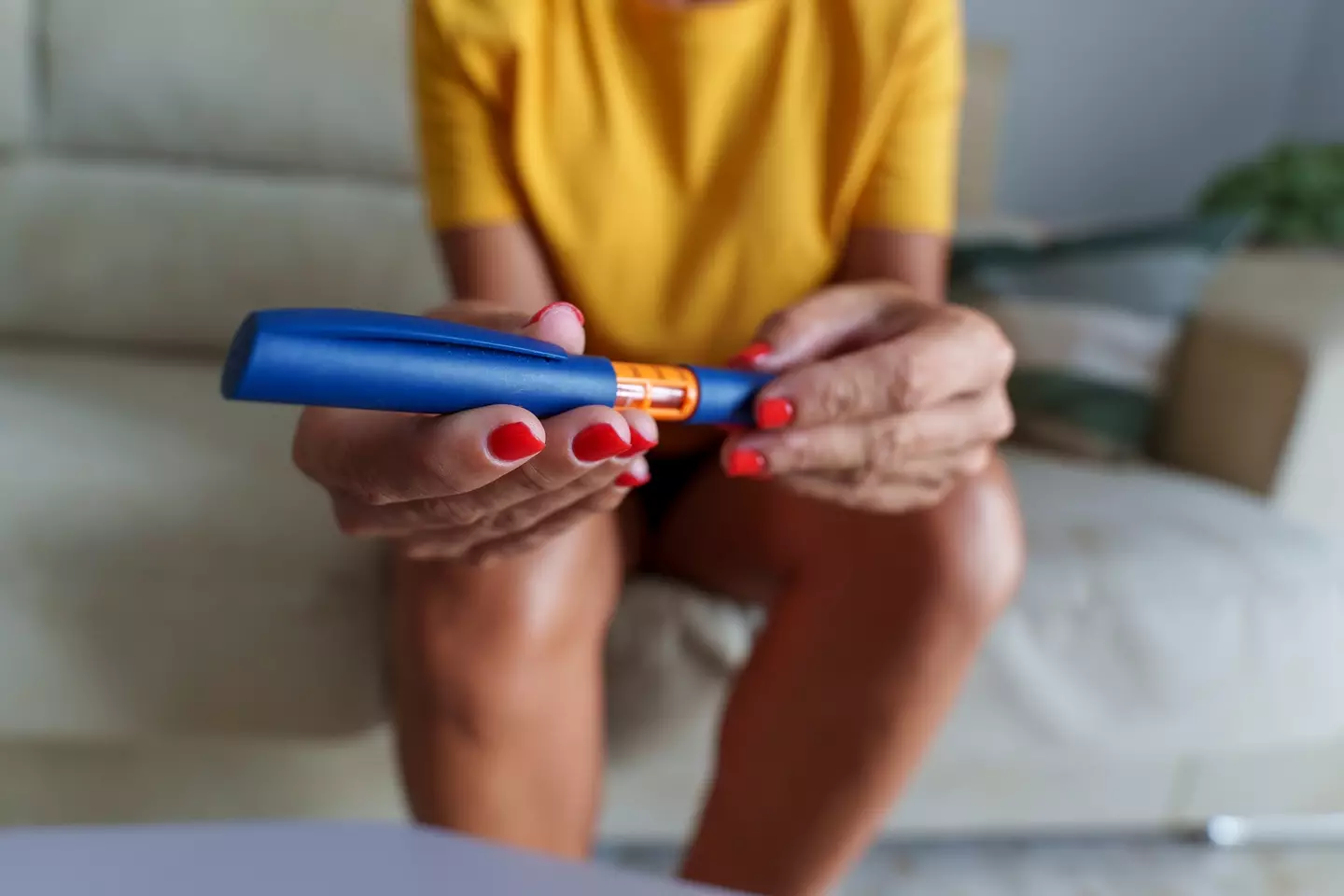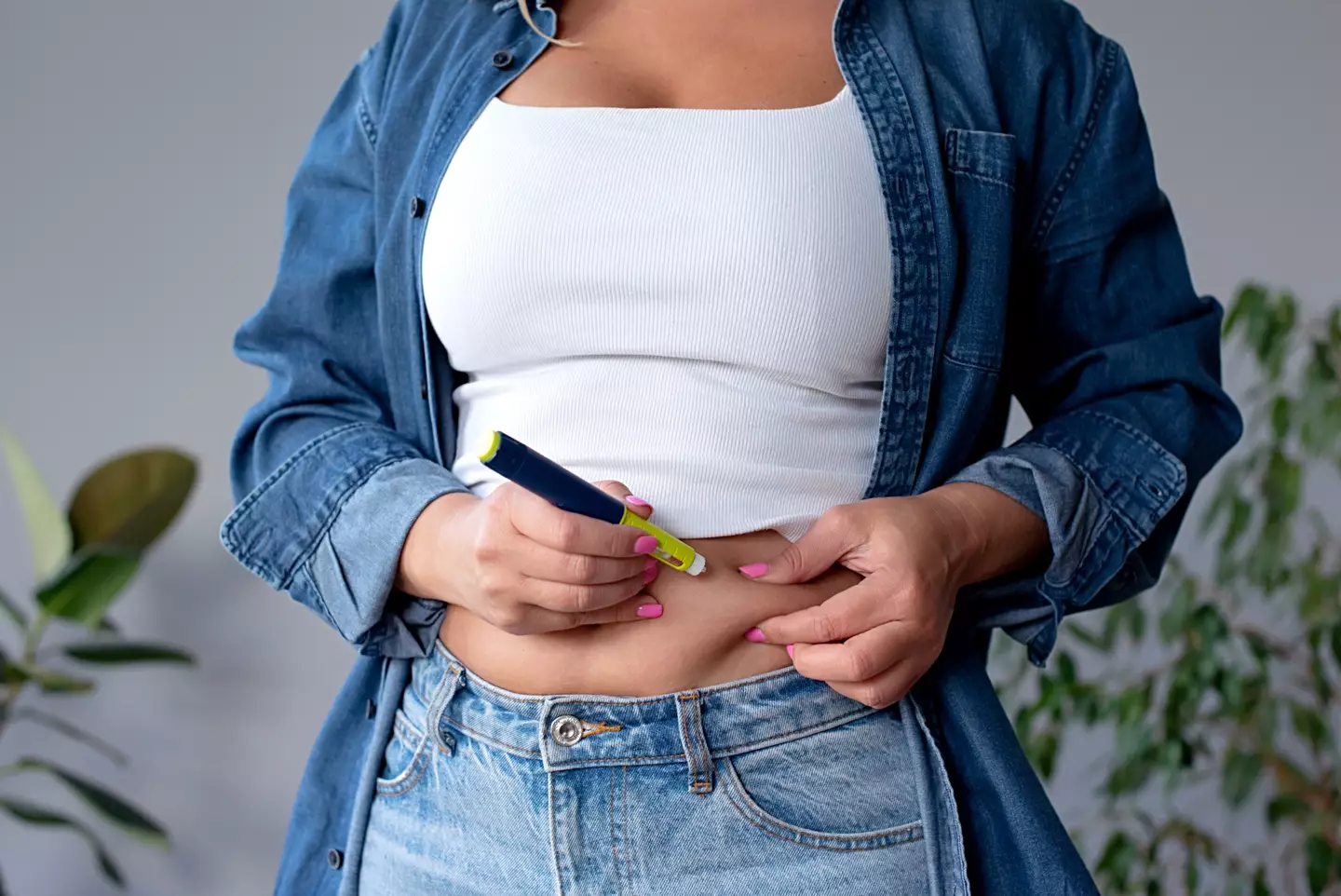
New research has revealed how weight loss drugs change how your body processes alcohol.
GLP-1 medications like Ozempic, Wegovy, and Mounjaro have become popular for shrinking waistlines and controlling blood sugar in patients with Type 2 diabetes.
But scientists have just uncovered an unexpected effect these drugs have when people drink alcohol.
Previous research had already documented that people taking these medications tend to drink less alcohol overall, with some reporting losing interest in drinking after starting the drugs.
Advert

But a new study reveals that even when people on these medications do drink, their bodies process alcohol in a fundamentally different way than before.
Semaglutide (in Wegovy) and tirzepatide (in Mounjaro) work by mimicking natural hormones that control blood sugar and appetite. This hormonal effect influences not just food cravings but also the desire to drink alcohol.
Researchers at Virginia Tech's Fralin Biomedical Research Institute decided to dig deeper. The scientists recruited 20 adults with obesity for the study. Half had been taking GLP-1 receptor agonists for at least four weeks, while the other half served as a control group.
Advert
Both groups fasted overnight, then ate the same snack before drinking alcoholic beverages that had been designed to reach about 0.08 on a breathalyser.
Over the next four hours, researchers monitored the participants' breath alcohol levels, alcohol cravings, appetite, nausea and blood sugar. Participants also rated how drunk they felt on a 1-10 scale.
Turns out, the participants taking GLP-1s showed a slower rise in breath alcohol during the first 10 to 20 minutes and lower overall levels throughout the period.

Advert
They also reported feeling far less drunk in the early stages, suggesting that they could be experiencing a delayed response to alcohol metabolism.
The findings, published this month in Scientific Reports, align with what scientists already know about how these medications work in your digestive system.
One key mechanism is that GLP-1 drugs slow down gastric emptying, which is the rate at which your stomach passes food into your intestines. This delay affects everything in your stomach, including alcohol.
Normally, this slowed digestion creates a longer-lasting feeling of fullness, which helps with weight loss. But it also means alcohol takes much longer to enter your bloodstream.
Advert
"People who drink know there’s a difference between nursing a glass of wine and downing a shot of whiskey," Alex DiFeliceantonio, assistant professor and interim co-director of the institute's Center for Health Behaviors Research, explained. "Faster-acting drugs have a higher abuse potential. They have a different impact on the brain. So, if GLP-1s slow alcohol entering the bloodstream, they could reduce the effect of alcohol and help people drink less."
However, further research is needed to confirm the long-term effects of these weight loss drugs.
"More studies are needed to help establish how effective these drugs are, what the long-term effects are, if some are better than others, and what dose is most effective for reducing drinking versus controlling blood glucose, for example," DiFeliceantonio added. "These are all open questions."